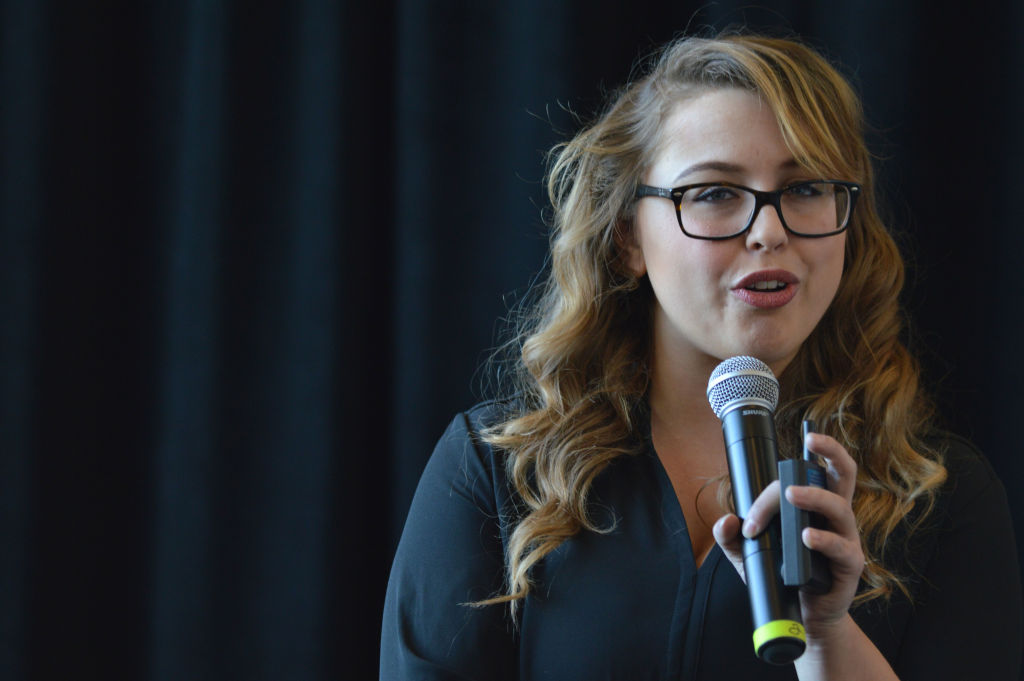
Sexual violence is a serious issue that women face every day, but male victims and female perpetrators are often excluded from the discussion. Laci Green and Julie Lalonde spoke out against this stigma and brought men into the picture as they tackled the subject of rape culture at Algonquin’s Consent Fest on Feb. 2-3.
Green, an internet sex educator with nearly 1.5 million subscribers on YouTube, hosted the first day of the event and gave an hour long presentation to over 70 students who had registered.
Following along with Algonquin’s sexual assault initiative, Green clearly set out what constitutes consent and explained the effects of rape culture in North America.
“Sex is something that happens together,” said Green. “Sex is never something that happens to someone. Sexual assault happens to someone.”
According to Green, trivialization is one of the driving forces behind rape culture.
“Instead of being seen as a serious social problem, it’s seen as an accepted part of life,” she said. “My favourite trivializers are American politicians. God bless America y’all.”
She went on to emphasize that trivialization and gender roles have also created created a stigma of male victims coming forward.
“We render men as essentially un-rapeable,” said Green. “This isn’t just about women.”
She also encouraged the audience to use their own voices and become active participants in the initiative through internet activism.

The second day of Consent Fest hosted Governor General Award winning activist, Julie Lalonde. She blanketed Green’s sentiments and defined the role of a positive bystander during the Bystander Intervention and Safe Partying workshop. The workshop is a part of Lalonde’s organization, Draw the Line, which she developed in 2012.
Even though it had a smaller turnout than day one, the workshop still had a big impact on the police foundation students in attendance.
According to Rob Mulley and Matt St. John, both police foundation students, the group was attending the workshop as a part of their criminology course.
“We were learning about victimology in our course and our teacher thought it would be a good idea to bring us here,” said Mulley.
Their instructor, Lisa Gerrard, is optimistic that the workshop will be a valuable tool for her students.
“I’m hopeful it will make them more knowledgeable first responders,” said Gerrard.
Like Green, Lalonde touched on rape culture, but the main focus of her presentation was the importance of bystander intervention.
According to Lalonde, the presence of other people often hinders intervention.
“Nobody wants to be a cock block,” said Lalonde. “The things people will do to avoid an awkward situation is fascinating to me.”
Lalonde also made reference to the Canadian Criminal Code and described its definition of consent as “super chill.”
“You can do this and still have the best time,” said Lalonde. “People think that if you did what the feminists wanted you to do, you’d never have a good time.”
She also emphasized that the point of this initiative was not to single out men as perpetrators.
“One in three women being assaulted does not mean one in three men are perpetrators,” she said. “I don’t hate men. Straight up!”
Although Green and Lalonde had different focuses with their presentations, both agreed that society needs to put an end to victim blaming.
“Let’s take down rape culture y’all,” urged Green.


